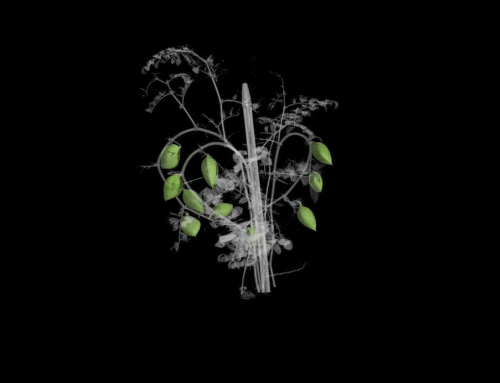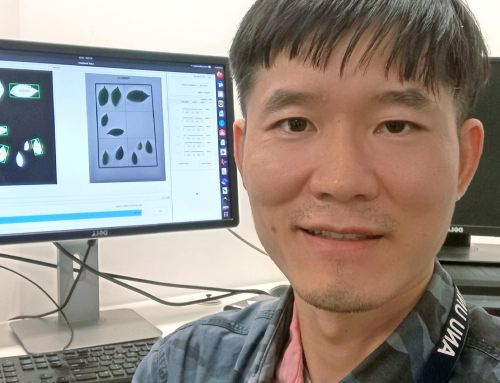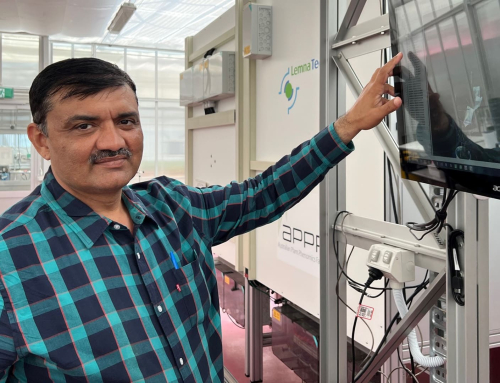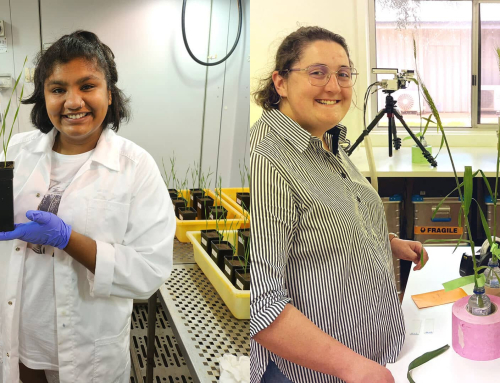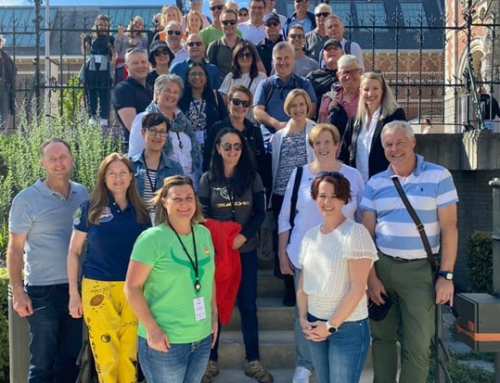The team at the APPN’s Canberra node, hosted by Australian National University, have been supporting two ANU research students through our Postgraduate Internship Awards (PIA) program, as they each investigate key plant science questions related to addressing the impacts of climate change.
Salma Sarker is a PhD candidate at the Ecology & Evolution Department of ANU, and her project aims to better understand the effects of heat and drought on the growth of native alpine grassland plants, their mycorrhizal associations and the soil microbiome.
Australia’s alpine areas are delicately balanced environments that are vulnerable to the effects of climate change – especially the impacts of a warmer and drier climate. They are considered biodiversity hotspots, and their catchments provide about 30% of the water for the Murray Darling Basin and its significant industry, agriculture, irrigation and town supplies.
Salma says climate change is likely to significantly impact soil microbiota, plant diversity and health, and water quality in alpine environments.
“Understanding the impact of climate change on such vulnerable microbiota communities and mycorrhizal-plant interactions is now one of the top goals for environmental science and manipulating climate conditions experimentally is a powerful way to achieve this goal.”
Salma is using APPN’s controlled environment growth chambers to subject selected alpine grassland species to warm and/or dry climate conditions, then assessing phenotypic expression across biomass, plant height, leaf area, etc. with weekly 3D canopy scans using the Phenospex PlantEye.
Soil nutrient levels, root-fungal colonisation and mycorrhizal growth responses are also being measured, and the soil microbiome will be assessed using genetic sequencing (funded by Linde lab).
Meanwhile, ANU Research School of Biology PhD candidate Marvin Jin is working on a separate project to characterise the downstream gene targets of the CEPR1 (CEP Receptor 1) pathway that controls root system steepness in plants, using the fast-growing Arabidopsis thaliana (thale cress) as his subject.
It is believed plants with more steeply downward growing roots are better able to access moisture and nutrients stored deeper in the soil profile. Understanding the mechanisms involved, and developing methods to manipulate them, could lead to crops that are better adapted to maintain yield quality and stability in a more drought-prone climate.
Marvin’s project takes advantage of the new rhizoboxes that were recently installed at APPN’s Canberra node to grow subject plants and non-invasively inspect their root architecture in planta.
Above-ground development will also be assessed across a range of phenotypic traits (leaf area, chlorophyll content, plant height, etc) using APPN’s 3D canopy scanner (Phenospex PlantEye) to quantify the performance of plants with steeper root systems under drier conditions.
“Data from this experiment will be used to support my hypothesis that the genes governing hormone signalling, synthesis, and conjugation can alter root system steepness,” Marvin says.
“Plant mutants lacking CEPR1 function have steeper root systems, but they also have reduced shoot biomass. Using APPN’s high-throughput phenotyping technologies will help us find new plant lines to uncouple poor shoot performance from steeper root traits.”
About our PIA Program
The APPN Postgraduate Internship Awards (PIA) program provides postgraduate students with up to $10,000 worth of access to our sophisticated plant phenomics infrastructure – as well as a valuable opportunity to work alongside APPN staff to learn more about the potential applications and benefits of our phenotyping technologies.
Internships are awarded twice per year, with applications closing on 30 May and 30 November.
Applicant can choose to work APPN team across our network and PIA awards may include assistance with travel and accommodation costs if required.
Postgraduate students at any Australian university are encouraged to learn more, consult with their supervisors and the APPN team, and submit an application.
See our website for more details.
APPN now encompasses nine nodes located across Australia’s mainland states and internship opportunities at our new nodes will be publicised as they become available.


